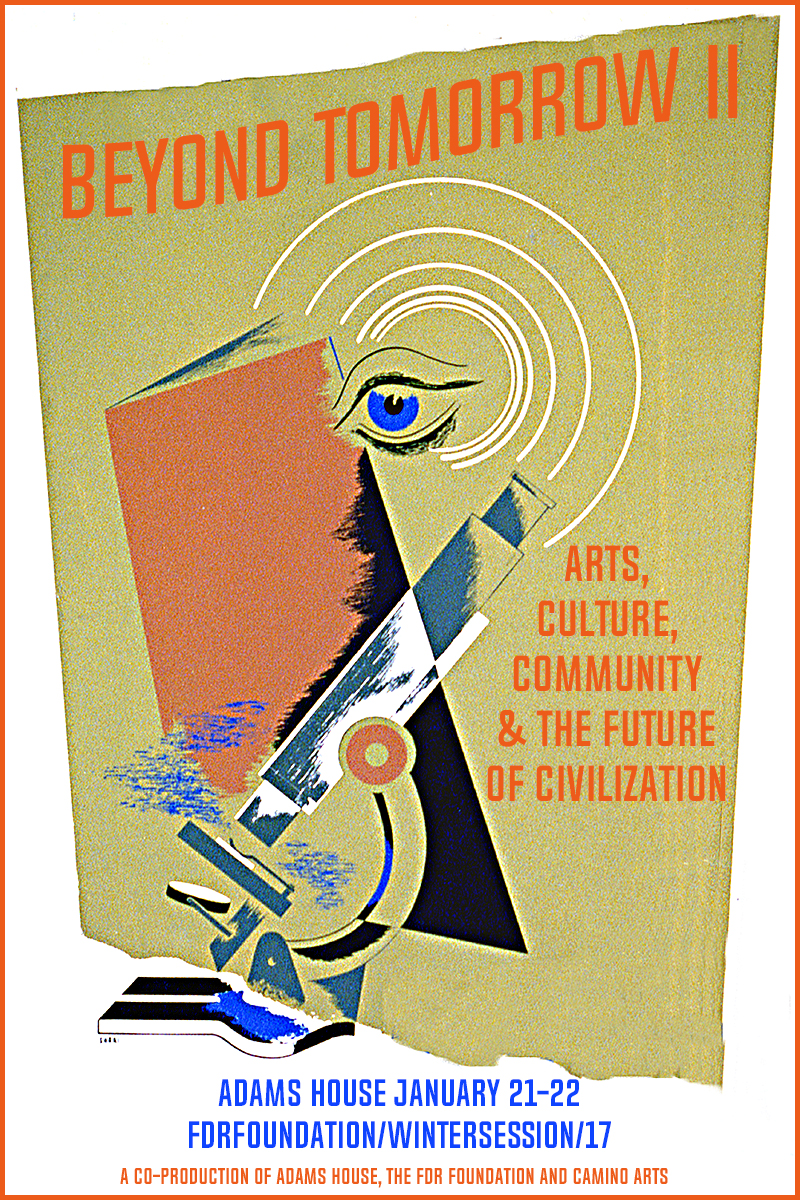SIGN UP HERE
Or, watch the trailer
Wintersession 2017 January 20 – 22
Convening Vision Statement:
Today, as the twin challenges of climate change and explosive population growth loom ever larger — with their concomitant by-products of economic and political instability — the word “resilient” is heard seen again and again: utility infrastructure must be upgraded to be storm “resilient“; public safety nets must be strengthened to be more “resilient”; new, more “resilient” systems must be put in place to prevent economic disasters. Yet the sad truth is that we can only go so far in strengthening the defenses of our external world. In the end, humanity will have to adapt to whatever new reality is presented to us. But while we may not be the masters of our future, we most certainly are the creators of possibility.
Seventy years ago, on the eve of World War II, FDR addressed the graduates of the University of Pennsylvania. It was a foreboding time, with war and despotism advancing across the world. Yet despite apparent darkness of the hour, FDR saw a way forward. “It is the function of education,” he reminded them, “the function of all of the great institutions of learning in the United States, to provide continuity for our national life — to transmit to youth the best of our culture that has been tested in the fire of history. It is equally the obligation of education to train the minds and the talents of our youth; to improve, through creative citizenship our American institutions in accord with the requirements of the future.”
Conference Description:
Heading Roosevelt’s call, Adams House and the FDR Foundation, in partnership with Camino Arts, a Latino arts initiative, will be asking this question: “How can the global citizens use the power of the arts and humanities to address the challenges that confront our communities and our planet today and threaten our very existence in the future?”
Thus throughout the three days of the conference, we will highlight creative thinkers in fields as diverse as ancient Mayan culture to bio-molecular exploration, who will share with us their examples of non-linear, creative leaps that have influenced their work; identify sources of their inspiration; and show us how to better harness imagination and curiosity in our own fields of endeavor. And to provide additional proof that thinking outside-the-box can make for incredible results, conference attendees will participate in hands-on workshops that in a space of an hour, will introduce them to a new creative lens to see the world.
In a feature unique to Beyond Tomorrow, students will also have the opportunity for small group and one-on-one mentoring sessions with distinguished faculty and performers including: David Carasco, Benjamín Juárez Echenique, Edward Glaeser, Susan Israel, Cynthia Koch, Robert Lue, Ruben Navarrette, Mark Plotkin, Margarita Quihuis, Nick Taylor, Marisa Silver, Michael Weishan and Jed Willard. There will also be performances and workshops by op-ed cartoonist and television writer Lalo Alcaraz, the Mexican folk music ensemble Radio Jarocho, concert flutist Marisa Canales and Adams House student Sam Wu, who is composing a special piece for the conference and will offer its premier performance during the program.
Speakers:
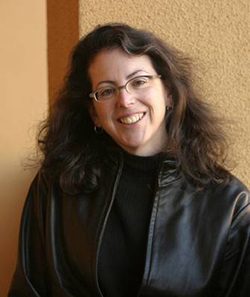 Marcela Davison Avilés is a prominent American essayist, independent producer, attorney, and Latino cultural dramaturge and advisor based in the San Francisco Bay Area. Her national Op-Ed opinions appear online in MOSH.US and ModernLatina.com. and in print in the Mercury News. Her guest columns and features have been published by CNN.com, the American Banker and Harvard University’s Revista Magazine. Her work as a producer and curator has appeared in prestigious concert halls, international festivals and museums. Ms. Aviles’ current activities in broadcast, film and digital platforms include episodic television with the Walt Disney Company, and animated feature films with Pixar Animation Studios.
Marcela Davison Avilés is a prominent American essayist, independent producer, attorney, and Latino cultural dramaturge and advisor based in the San Francisco Bay Area. Her national Op-Ed opinions appear online in MOSH.US and ModernLatina.com. and in print in the Mercury News. Her guest columns and features have been published by CNN.com, the American Banker and Harvard University’s Revista Magazine. Her work as a producer and curator has appeared in prestigious concert halls, international festivals and museums. Ms. Aviles’ current activities in broadcast, film and digital platforms include episodic television with the Walt Disney Company, and animated feature films with Pixar Animation Studios.
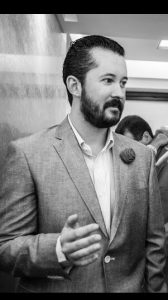
Diego Canales, born and raised in Mexico City, received his Engineer’s degree from that city’s Universidad Iberoamericana. During his time in the university, he won the freshmen Engineering competition. Later on in his senior year, he was a project leader for a research initiative to develop tools and equipment for rural farmers in the most remote areas of Mexico. The focus of this initiative was to develop efficient tools that could be powered with the human body.
He joined the team of Dr. Francisco Gurria in the Coordinación General de Ganadería where he worked directly for the undersecretary for livestock policy at a federal level. Here he focused on generating food security in Mexico through promoting research and technological exchange between México and other countries. He focused on feed production for livestock and in finding new and sustainable ways to produce protein for the feed. Also, he worked closely with Mexican livestock producers and farmers to improve the productivity of the herd and quality of life in Mexico’s most vulnerable rural areas. In his time in SAGARPA he had the opportunity to travel throughout all of Mexico and obtain a deep understanding of Mexico’s Ag and Livestock industry. It is here through this work that he understood the great challenge agricultural industry the world over is facing. Will we as a humanity keep the status quo and continue to deplete the earth’s resources, or will we change the way we do things in order, not only to preserve resources but in doing so also become more productive and more efficient in growing food for the billions of people that live on this planet?
At Infinitree Diego brings a deep knowledge of agriculture tech and policy and a profound desire to create a significant but positive impact on the planet. Diego found the perfect constellation of challenges. To improve the productivity of food and ensure food security for generations to come all the while preserving water and resources and reducing concentrations of CO2 in the atmosphere to stave off global warming.
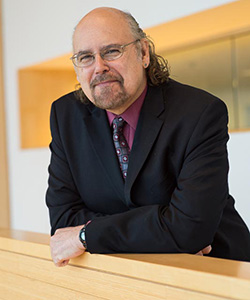 David Carrasco – Neil L. Rudenstine Professor of the Study of Latin America, Harvard University. Davíd Carrasco is “a man of our time, a man of enormous vitality and value,” (Carlos de Icaza, the Ambassador of Mexico), who holds the inaugural Neil L. Rudenstine Professor of the Study of Latin America at Harvard University with a joint appointment at the Harvard Divinity School and in the Department of Anthropology of the Faculty of Arts and Sciences. Carrasco is an award winning author and editor and has received outstanding teaching awards from both the University of Colorado and Harvard University. Carrasco’s creative work in the history of religions has been lauded for its “existential oomph” which has resulted in the celebrated Cave, City and Eagle’s Nest (with Scott Sessions) Gold Medal from Publishers of the West, and City of Sacrifice, lauded by Carlos Fuentes as a “brilliant, provocative, timely and eternal book”. He is a leading interpreter of Latino/a cultures and the executive co-producer of the film “Alambrista: The Director’s Cut” which puts a human face on the ordeal of undocumented immigration into the United States. Carrasco lectures widely in the United States and abroad and was awarded the Mexican Order of the Aztec Eagle for his contributions to understanding the history and cultures of Mexico.
David Carrasco – Neil L. Rudenstine Professor of the Study of Latin America, Harvard University. Davíd Carrasco is “a man of our time, a man of enormous vitality and value,” (Carlos de Icaza, the Ambassador of Mexico), who holds the inaugural Neil L. Rudenstine Professor of the Study of Latin America at Harvard University with a joint appointment at the Harvard Divinity School and in the Department of Anthropology of the Faculty of Arts and Sciences. Carrasco is an award winning author and editor and has received outstanding teaching awards from both the University of Colorado and Harvard University. Carrasco’s creative work in the history of religions has been lauded for its “existential oomph” which has resulted in the celebrated Cave, City and Eagle’s Nest (with Scott Sessions) Gold Medal from Publishers of the West, and City of Sacrifice, lauded by Carlos Fuentes as a “brilliant, provocative, timely and eternal book”. He is a leading interpreter of Latino/a cultures and the executive co-producer of the film “Alambrista: The Director’s Cut” which puts a human face on the ordeal of undocumented immigration into the United States. Carrasco lectures widely in the United States and abroad and was awarded the Mexican Order of the Aztec Eagle for his contributions to understanding the history and cultures of Mexico.
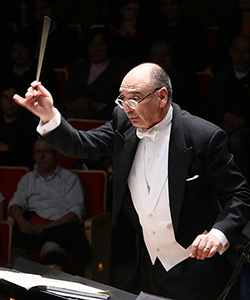 Benjamín Juárez Echenique – Professor of Fine Arts and Arts Leadership, Boston University, Co-Founder, Camino Arts. Professor Echenique is currently professor of Fine Arts and Arts Leadership at Boston University, a music conductor and scholar with over four decades of experience in the arts. Born in Mexico City, he studied in Mexico at the National School of Music, National University of Mexico, the California Institute of the Arts, where he obtained his Master of Fine Arts in Music, as well as in Italy, France and England. He was principal guest conductor and assistant conductor of the State of Mexico Symphony Orchestra from 1979 to 1981; associate conductor of the Mexico City Philharmonic Orchestra from 1983 to 1987; and music director of the Gran Festival de la Ciudad de Mexico in 1989-90. He has lectured and run workshops on music and the arts in Mexico and abroad, where in 1984, Juarez was honored as the first Latin American to conduct an orchestra in China. He is a Latin Grammy nominee and produced and presented hundreds of radio and television programs in Mexico. He is currently affiliated to the research university Instituto Dr. Jose Ma. Luis Mora.
Benjamín Juárez Echenique – Professor of Fine Arts and Arts Leadership, Boston University, Co-Founder, Camino Arts. Professor Echenique is currently professor of Fine Arts and Arts Leadership at Boston University, a music conductor and scholar with over four decades of experience in the arts. Born in Mexico City, he studied in Mexico at the National School of Music, National University of Mexico, the California Institute of the Arts, where he obtained his Master of Fine Arts in Music, as well as in Italy, France and England. He was principal guest conductor and assistant conductor of the State of Mexico Symphony Orchestra from 1979 to 1981; associate conductor of the Mexico City Philharmonic Orchestra from 1983 to 1987; and music director of the Gran Festival de la Ciudad de Mexico in 1989-90. He has lectured and run workshops on music and the arts in Mexico and abroad, where in 1984, Juarez was honored as the first Latin American to conduct an orchestra in China. He is a Latin Grammy nominee and produced and presented hundreds of radio and television programs in Mexico. He is currently affiliated to the research university Instituto Dr. Jose Ma. Luis Mora.
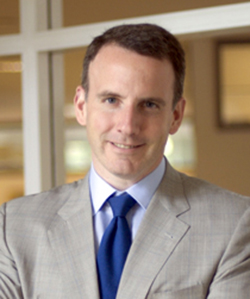 Edward Glaeser, Edward Glaeser is the Fred and Eleanor Glimp Professor of Economics in the Faculty of Arts and Sciences where he has taught since 1992. He regularly teaches microeconomics theory, and occasionally urban and public economics. He has served as Director of the Taubman Center for State and Local Government, and Director of the Rappaport Institute for Greater Boston. He has published dozens of papers on cities economic growth, law, and economics. In particular, his work has focused on the determinants of city growth and the role of cities as centers of idea transmission. He received his PhD from the University of Chicago in 1992. His books include Cities, Agglomeration, and Spatial Equilibrium (Oxford University Press, 2008), Rethinking Federal Housing Policy (American Enterprise Institute Press, 2008), and Triumph of the City (Penguin Press, 2011).
Edward Glaeser, Edward Glaeser is the Fred and Eleanor Glimp Professor of Economics in the Faculty of Arts and Sciences where he has taught since 1992. He regularly teaches microeconomics theory, and occasionally urban and public economics. He has served as Director of the Taubman Center for State and Local Government, and Director of the Rappaport Institute for Greater Boston. He has published dozens of papers on cities economic growth, law, and economics. In particular, his work has focused on the determinants of city growth and the role of cities as centers of idea transmission. He received his PhD from the University of Chicago in 1992. His books include Cities, Agglomeration, and Spatial Equilibrium (Oxford University Press, 2008), Rethinking Federal Housing Policy (American Enterprise Institute Press, 2008), and Triumph of the City (Penguin Press, 2011).
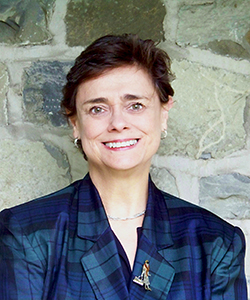 Cynthia M. Koch is Historian in Residence and Director of History Programing for the Franklin Delano Roosevelt Foundation at Adams House, Harvard University. She was Director of the Franklin D. Roosevelt Presidential Library and Museum in Hyde Park, New York (1999-2011) and subsequently Senior Adviser to the Office of Presidential Libraries, National Archives, Washington, D.C. From 2013-16 she was Public Historian in Residence at Bard College, Annandale-on-Hudson, NY where she taught courses in public history and Franklin and Eleanor Roosevelt. Her most recent publications are “They Hated Eleanor, Too,” “Hillary R[oosevelt] Clinton,” “Demagogues and Democracy,” and “Democracy and the Election” are published online by the FDR Foundation. Previously Dr. Koch was Associate Director of the Penn National Commission on Society, Culture and Community, a national public policy research group at the University of Pennsylvania. She served as Executive Director (1993-1997) of the New Jersey Council for the Humanities, a state affiliate of the National Endowment for the Humanities, and was Director (1979-1993) of the National Historic Landmark Old Barracks Museum in Trenton, New Jersey. A native of Erie, Pennsylvania, she holds a Ph.D. and M.A. in American Civilization from the University of Pennsylvania and a B.A. in History from Pennsylvania State University.
Cynthia M. Koch is Historian in Residence and Director of History Programing for the Franklin Delano Roosevelt Foundation at Adams House, Harvard University. She was Director of the Franklin D. Roosevelt Presidential Library and Museum in Hyde Park, New York (1999-2011) and subsequently Senior Adviser to the Office of Presidential Libraries, National Archives, Washington, D.C. From 2013-16 she was Public Historian in Residence at Bard College, Annandale-on-Hudson, NY where she taught courses in public history and Franklin and Eleanor Roosevelt. Her most recent publications are “They Hated Eleanor, Too,” “Hillary R[oosevelt] Clinton,” “Demagogues and Democracy,” and “Democracy and the Election” are published online by the FDR Foundation. Previously Dr. Koch was Associate Director of the Penn National Commission on Society, Culture and Community, a national public policy research group at the University of Pennsylvania. She served as Executive Director (1993-1997) of the New Jersey Council for the Humanities, a state affiliate of the National Endowment for the Humanities, and was Director (1979-1993) of the National Historic Landmark Old Barracks Museum in Trenton, New Jersey. A native of Erie, Pennsylvania, she holds a Ph.D. and M.A. in American Civilization from the University of Pennsylvania and a B.A. in History from Pennsylvania State University.
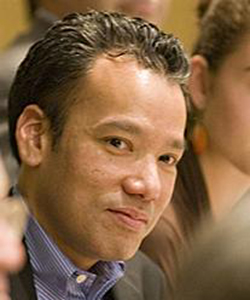 Robert A. Lue, Faculty Director of the Derek Bok Center for Teaching and Learning, Harvard Robert Lue is a professor of molecular and cellular biology at Harvard University and the Richard L. Menschel Faculty Director of the Derek Bok Center for Teaching and Learning, where he is responsible for fostering innovative teaching in Harvard’s Faculty of Arts and Sciences. Lue earned his Ph.D. in biology from Harvard, and since 1988 has taught undergraduate courses acclaimed for their innovative and interdisciplinary approach. In 2012, Lue’s extensive work on using technology to enhance learning took a new direction when he became faculty director of HarvardX, Harvard’s university-wide online education initiative that includes the edX partnership with MIT. Lue now helps to shape Harvard’s engagement in online learning to reinforce its commitment to teaching excellence and expand its reach and impact globally. He also serves as the faculty director of the Harvard Ed Portal, the primary community engagement center in Harvard’s new Allston campus.
Robert A. Lue, Faculty Director of the Derek Bok Center for Teaching and Learning, Harvard Robert Lue is a professor of molecular and cellular biology at Harvard University and the Richard L. Menschel Faculty Director of the Derek Bok Center for Teaching and Learning, where he is responsible for fostering innovative teaching in Harvard’s Faculty of Arts and Sciences. Lue earned his Ph.D. in biology from Harvard, and since 1988 has taught undergraduate courses acclaimed for their innovative and interdisciplinary approach. In 2012, Lue’s extensive work on using technology to enhance learning took a new direction when he became faculty director of HarvardX, Harvard’s university-wide online education initiative that includes the edX partnership with MIT. Lue now helps to shape Harvard’s engagement in online learning to reinforce its commitment to teaching excellence and expand its reach and impact globally. He also serves as the faculty director of the Harvard Ed Portal, the primary community engagement center in Harvard’s new Allston campus.
Frank O’Keefe is Co-Founder of Infinitree, which captures CO2 from ambient air for desorption in greenhouses. In 2008, monthly inflation in corn prices exceeded 2007’s entire annual inflation. Rice prices rose 147% for the year, wheat prices by 25% on a single day. The increased prices did not recede. Abruptly—in a single year—the entire world’s food, energy and economic foundations shifted, proving anything but solid. Scientists called for a moratorium on biofuel production from corn for food inflation was directly correlated from diversion of grains to fuel production. Many went hungry in 2008, some starved. People suffered horribly, and for many the suffering continues.
Frank has been focused on carbon capture since 2002, when he first began funding research in the space. He worked for 28 years in finance—following work in a hydrocarbon-based synthetic rubber plant on the Mississippi River in Louisiana. In finance Frank was drawn into risk management, contributing to creation of several important structured-finance innovations: options on oil futures enabling low-cost hedging for oil companies (Lehman Brothers 1986), liability-driven fixed income management for financial service companies and stable-value structures for 401(k) plans (Bankers Trust ‘90-‘93) and other institutional-investor applications (JPMorgan ‘93-’97, Zurich Capital Markets ’97-‘99). Today the 401(k) structure—now offered by several competing banks—protects more than $850 billion in retirement money belonging to more than 60 million working Americans. The structure replaced riskier structured financial products whose “guarantees” were credit-dependent. Frank founded his own risk management firm in 1999 growing to more than $7 billion in fixed income, $400 million in floating rate debt and nearly $2 billion in swap contracts: all structured to outperform and replace several specific capital-expensive, costly, inflexible, and risky institutional structured finance products. He ceased an active role in the company to found and manage Carbon Sink.
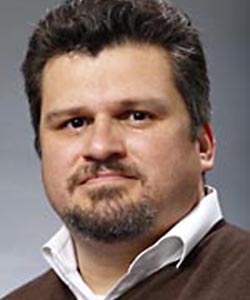
Ruben Navarrette, ‘91 syndicated columnist, Washington Post Writers Group Ruben Navarrette is the most widely read Latino columnist in the country, and the 16th most popular columnist in America according to Media Matters. He is a nationally syndicated columnist with The Washington Post Writers Group whose twice-a-week column appears in more than 100 newspapers, a contributor to USA Today and FOXNEWS.COM, and a regular columnist for the Daily Beast. He is a fellow at the George W. Bush Institute in Dallas. He is also the editor of MOSH OPINION, the opinion page of the social media site MOSH.US. On television, Navarrette has appeared on dozens of shows and been interviewed by Bill O’Reilly, Anderson Cooper, Lou Dobbs, Bill Moyers, and others. He also served as a panelist on the PBS’ All-American Presidential Forum in 2007, where he posed questions to Democratic candidates. On radio, he has been interviewed on dozens of local and national shows. He has been a commentator on National Public Radio. He has hosted radio shows in Phoenix, Dallas, San Diego, Fresno, and Los Angeles, and served as guest host for the nationally syndicated “The Michael Medved Show.” He has contributed to The Wall Street Journal, The Denver Post, The Chicago Tribune, Texas Monthly, Hispanic Magazine, Latino Magazine, PODER Magazine, VOXXI.COM, TIME.COM, Encyclopedia Britannica, & other publications. A graduate of Harvard College and the John F. Kennedy School of Government, he is the author of “A Darker Shade of Crimson: Odyssey of a Harvard Chicano” (Bantam, 1993).
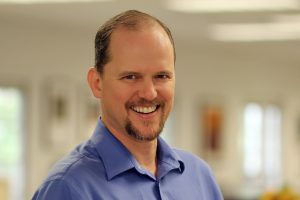
Mark Nelson is Co-Director, Peace Innovation Lab at Stanford. A former relief-worker, investment banker, and social entrepreneur, Mark Nelson founded and co-directs Stanford Peace Innovation Lab, where he researches mass collaboration and mass interpersonal persuasion. Mark focuses on designing, catalyzing, incentivizing, and generating resources to scale up collective positive human behavior change. He has described a functional, quantitative definition of peace, in terms of technology-mediated engagement episode quantity and quality across social difference lines; he has identified innovative, automated ways to measure peace, both at the neighborhood and global level; and he has developed a formal structural description for Peace Data. He leads the Global OPEN Social Sensor Array project, and designs technology interventions to measurably increase positive, mutually beneficial engagement across conflict boundaries. Mark’s mission is to create an entire new, profitable industry, where positive peace is delivered as a service. Other projects include EPIC Global Challenge and Peace Markets. Mark is also a researcher and practitioner at Stanford Persuasive Technology Lab, and a member of Stanford’s Kozmetsky Global Collaboratory.
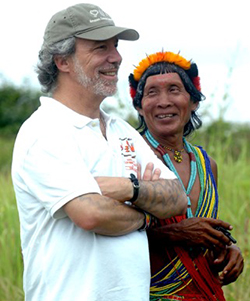 Mark Plotkin – A graduate of the Harvard Extension School (’79) Amazon Conservation Team co-founder Dr. Mark Plotkin is a renowned ethnobotanist who has studied traditional indigenous plant use with elder shamans (traditional healers) of Central and South America for much of the past 30 years. His organization (www.amazonteam.org) has partnered with 35 South American tribes to map, manage and improve protection of over 80 million acres of ancestral forests. His lecture of how to best protect uncontacted tribes is the single most popular TED Talk about the Amazon rainforest.
Mark Plotkin – A graduate of the Harvard Extension School (’79) Amazon Conservation Team co-founder Dr. Mark Plotkin is a renowned ethnobotanist who has studied traditional indigenous plant use with elder shamans (traditional healers) of Central and South America for much of the past 30 years. His organization (www.amazonteam.org) has partnered with 35 South American tribes to map, manage and improve protection of over 80 million acres of ancestral forests. His lecture of how to best protect uncontacted tribes is the single most popular TED Talk about the Amazon rainforest.
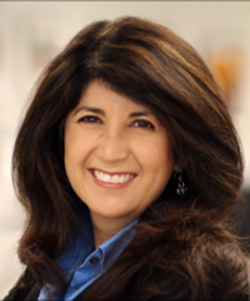 Margarita Quihuis – Co-Director, Peace Innovation Lab at Stanford. A social entrepreneur and mentor capitalist, Margarita Quihuis’s career has focused on innovation, technology incubation, access to capital and entrepreneurship. Her accomplishments include being the first director of Astia (formerly known as the Women’s Technology Cluster), a business incubator where her portfolio companies raised $67 million in venture funding, venture capitalist, Reuters Fellow at Stanford, and Director of RI Labs for Ricoh Innovations. She is currently a member of the research team at Stanford Persuasive Technology Lab, and co-directs the Stanford Peace Innovation Lab where she conducts research on innovation, mass collaboration, persuasive technology & the potential of social networks to change society for the better. Her projects have included the study of collaboration and citizen engagement to foster government innovation – Manor Labs, bottoms-up post-disaster response and recovery – Relief 2.0 and advisory roles in citizen psy-op efforts such as the the Israel Loves Iran and Romancing the Border social media campaigns. She is currently part of the working group for the Stanford/Naval Postgraduate School/US Army Governance Innovation for Security and Development research project. She is a recognized thought leader in the areas of innovation, emergent social behavior and technology and has been part of Deloitte’s On Social Roundtable and Aspen Institute’s Dialogue on Open Innovation and Dialogue on Diplomacy and Technology.
Margarita Quihuis – Co-Director, Peace Innovation Lab at Stanford. A social entrepreneur and mentor capitalist, Margarita Quihuis’s career has focused on innovation, technology incubation, access to capital and entrepreneurship. Her accomplishments include being the first director of Astia (formerly known as the Women’s Technology Cluster), a business incubator where her portfolio companies raised $67 million in venture funding, venture capitalist, Reuters Fellow at Stanford, and Director of RI Labs for Ricoh Innovations. She is currently a member of the research team at Stanford Persuasive Technology Lab, and co-directs the Stanford Peace Innovation Lab where she conducts research on innovation, mass collaboration, persuasive technology & the potential of social networks to change society for the better. Her projects have included the study of collaboration and citizen engagement to foster government innovation – Manor Labs, bottoms-up post-disaster response and recovery – Relief 2.0 and advisory roles in citizen psy-op efforts such as the the Israel Loves Iran and Romancing the Border social media campaigns. She is currently part of the working group for the Stanford/Naval Postgraduate School/US Army Governance Innovation for Security and Development research project. She is a recognized thought leader in the areas of innovation, emergent social behavior and technology and has been part of Deloitte’s On Social Roundtable and Aspen Institute’s Dialogue on Open Innovation and Dialogue on Diplomacy and Technology.
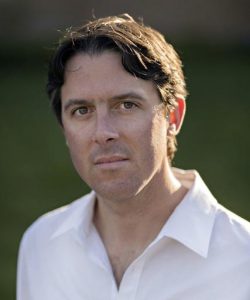 Nick Taylor, author, Director, Steinbeck Center, San Jose State University Nick Taylor is an associate professor of English at San Jose State University, Director of the Martha Heasley Cox Center for Stenbeck Studies at SJSU and an author of historical novels. His work has earned a Fulbright-Nehru Fellowship and the Michael Shaara Prize for Civil War fiction. Nick’s published work includes The Disagreement (Simon & Schuster, 2008), Father Junipero’s Confessor (Heyday, 2013) and The Setup Man (Doubleday 2014).
Nick Taylor, author, Director, Steinbeck Center, San Jose State University Nick Taylor is an associate professor of English at San Jose State University, Director of the Martha Heasley Cox Center for Stenbeck Studies at SJSU and an author of historical novels. His work has earned a Fulbright-Nehru Fellowship and the Michael Shaara Prize for Civil War fiction. Nick’s published work includes The Disagreement (Simon & Schuster, 2008), Father Junipero’s Confessor (Heyday, 2013) and The Setup Man (Doubleday 2014).
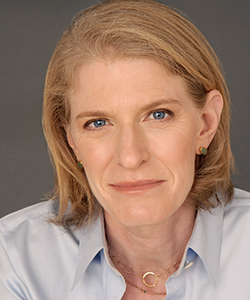 Marisa Silver, ’81 – author and essayist Marisa Silver is the author, most recently, of the novel, Little Nothing. Her other novels include Mary Coin, a New York Times Bestseller and winner of the Southern California Independent Booksellers Association Award for Fiction, The God of War, which was a finalist for the Los Angeles Times Book Prize for fiction, and No Direction Home. Her first collection of short stories, Babe in Paradise was named a New York Times Notable Book of the Year and was a Los Angeles Times Best Book of the Year. When her second collection, Alone With You was published, The New York Times called her “one of California’s most celebrated contemporary writers.” Silver made her fiction debut in The New Yorker when she was featured in that magazine’s first “Debut Fiction” issue. Winner of the O. Henry Prize, her fiction has been included in The Best American Short Stories, The O. Henry Prize Stories, as well as other anthologies.
Marisa Silver, ’81 – author and essayist Marisa Silver is the author, most recently, of the novel, Little Nothing. Her other novels include Mary Coin, a New York Times Bestseller and winner of the Southern California Independent Booksellers Association Award for Fiction, The God of War, which was a finalist for the Los Angeles Times Book Prize for fiction, and No Direction Home. Her first collection of short stories, Babe in Paradise was named a New York Times Notable Book of the Year and was a Los Angeles Times Best Book of the Year. When her second collection, Alone With You was published, The New York Times called her “one of California’s most celebrated contemporary writers.” Silver made her fiction debut in The New Yorker when she was featured in that magazine’s first “Debut Fiction” issue. Winner of the O. Henry Prize, her fiction has been included in The Best American Short Stories, The O. Henry Prize Stories, as well as other anthologies.
Michael Weishan ‘86 Director, Franklin Delano Roosevelt Foundation, Harvard College
Jed Willard ‘96 Director, Franklin Delano Roosevelt Foundation, Harvard College
Performers, Artists and Workshop Leaders:
Lalo Alcaraz – syndicated op-ed cartoonist
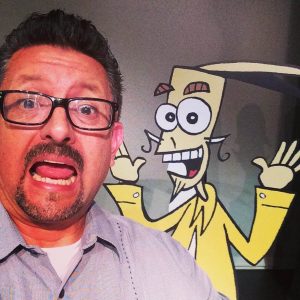 Lalo Alcaraz is most known for being the author of the comic La Cucaracha, the first nationally syndicated, politically themed Latino daily comic strip. Launched in 2002, La Cucaracha has become one of the most controversial in the history of American comic strips. He is also the creator of “Daniel D. Portado”, a satirical Hispanic character who in 1994 called on Mexican immigrants to return south—”reverse immigration”—as a response to the controversial Proposition 187. In 2012, Daniel D. Portado returned to the headlines as a result of Mitt Romneys call, during his campaign for the Republican presidential nomination, on undocumented immigrants to exercise “self-deportation.” A leading figure in the Chicano movement, Alcaraz also contributes political cartoons for LA Weekly and hosts a radio show on KPFK called the “Pocho Hour of Power.” He also contributed a work of art to the 2008 Obama campaign called “Viva Obama”. Alcaraz recently taught as a faculty member at Otis College of Art & Design, and is teaching illustration at Rio Hondo College in Whittier, CA, starting in fall 2016. Alcaraz was also Consulting Producer and Writer on the Seth MacFarlane–executive produced animated show (created by Family Guy show runner Mark Hentemann) Bordertown, which ran one 13-episode season on Fox. It featured the first animated Mexican-American or even Latino family on primetime American television.
Lalo Alcaraz is most known for being the author of the comic La Cucaracha, the first nationally syndicated, politically themed Latino daily comic strip. Launched in 2002, La Cucaracha has become one of the most controversial in the history of American comic strips. He is also the creator of “Daniel D. Portado”, a satirical Hispanic character who in 1994 called on Mexican immigrants to return south—”reverse immigration”—as a response to the controversial Proposition 187. In 2012, Daniel D. Portado returned to the headlines as a result of Mitt Romneys call, during his campaign for the Republican presidential nomination, on undocumented immigrants to exercise “self-deportation.” A leading figure in the Chicano movement, Alcaraz also contributes political cartoons for LA Weekly and hosts a radio show on KPFK called the “Pocho Hour of Power.” He also contributed a work of art to the 2008 Obama campaign called “Viva Obama”. Alcaraz recently taught as a faculty member at Otis College of Art & Design, and is teaching illustration at Rio Hondo College in Whittier, CA, starting in fall 2016. Alcaraz was also Consulting Producer and Writer on the Seth MacFarlane–executive produced animated show (created by Family Guy show runner Mark Hentemann) Bordertown, which ran one 13-episode season on Fox. It featured the first animated Mexican-American or even Latino family on primetime American television.
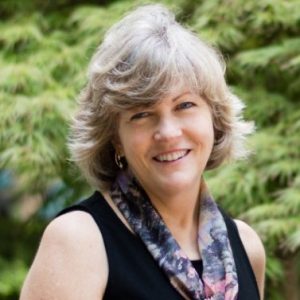 Melissa Allen Heath, ’80 – retired EPA attorney and environmental activist, is the Founding Director of GreenEdge Georgia, a private consultancy. GreenEdge Georgia advises individuals and companies in greening the things that matter — lifestyle, bottom line, and image. Prior to launching GreenEdge, Ms. Allen was an enforcement attorney with the Evironmental Protection Agency, across all programs, most recently CERCLA (Superfund) matters, focusing particularly on removal actions and mercury spill issues. Her EPA workgroup and team participation includes the following: National Mercury Workgroup, National Financial Responsibility Workgroup, Children’s Environmental Health Workgroup, Go4Green Team, and legal adviser to the Regional Employees Recreation Association.
Melissa Allen Heath, ’80 – retired EPA attorney and environmental activist, is the Founding Director of GreenEdge Georgia, a private consultancy. GreenEdge Georgia advises individuals and companies in greening the things that matter — lifestyle, bottom line, and image. Prior to launching GreenEdge, Ms. Allen was an enforcement attorney with the Evironmental Protection Agency, across all programs, most recently CERCLA (Superfund) matters, focusing particularly on removal actions and mercury spill issues. Her EPA workgroup and team participation includes the following: National Mercury Workgroup, National Financial Responsibility Workgroup, Children’s Environmental Health Workgroup, Go4Green Team, and legal adviser to the Regional Employees Recreation Association.
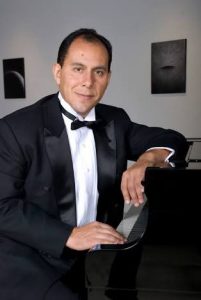 Dr. Martin Camacho is Dean of the College of Fine Arts in addition to serving on the faculty of the Department of Music. Dr. Camacho was born in Mexico City, and began his piano studies in that city at Escuela Superior de Música. He continued his studies at Instituto Superior de Arte in Havana, Cuba, where he earned a Bachelor of Music Degree in 1993. He received a Master of Music Degree in 1997 and a Professional Studies Diploma in 1999 from the Cleveland Institute of Music under the guidance of pianist Sergei Babayan. Dr. Camacho completed his doctoral studies in 2006 at the University of Miami in the studio of pianist Ivan Davis.
Dr. Martin Camacho is Dean of the College of Fine Arts in addition to serving on the faculty of the Department of Music. Dr. Camacho was born in Mexico City, and began his piano studies in that city at Escuela Superior de Música. He continued his studies at Instituto Superior de Arte in Havana, Cuba, where he earned a Bachelor of Music Degree in 1993. He received a Master of Music Degree in 1997 and a Professional Studies Diploma in 1999 from the Cleveland Institute of Music under the guidance of pianist Sergei Babayan. Dr. Camacho completed his doctoral studies in 2006 at the University of Miami in the studio of pianist Ivan Davis.
Martin Camacho has won eighteen national and local competitions in Mexico, Cuba, and the United States, and is considered one of the most important Mexican pianists of his generation. He has appeared as soloist with orchestras in the United States and Mexico, including Mexico’s State Orchestra and Bellas Artes Chamber Orchestra, and has performed extensively as a recitalist in the United States, Venezuela, Cuba, Japan, Norway, Italy, and Mexico. During the summer of 2000, he toured as soloist with the American Wind Symphony Orchestra, performing in more than fifteen cities in the USA and Canada. Dr. Camacho is also active in chamber and collaborative music with singers and other instrumentalists. In 2009 he made his Carnegie Hall Debut Recital to great acclaim before a sold-out hall.
Camacho’s expertise in Mexican and Latin American music has led to several presentations in national and international conferences of lectures and recitals of topics related to Mexican music. He has been the recipient of Mexico’s National Endowment for the Arts (FONCA) prestigious grant for his dissemination of Mexican music. Before his appointment as a Dean of the Fain College of Fine Arts, he was Chair of the Department of Music at Alabama State University, served as a full-time music faculty and Assistant Chair at Barry University Fine Arts Department in Miami Shores, FL, and as Dean of Arts, Humanities, and Social Sciences at the Community College of Rhode Island.
Marisa Canales – concert flutist, founder, Urtext Digital Classics and Camino Arts.
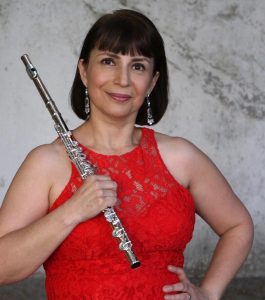 Marisa Canales is a Mexican flute player and Latin Grammy nominated record producer. She was born in Mexico City where she started her musical studies; she later attended the University of the Arts in Philadelphia, then Philadelphia College of Performing Arts (PCPA), where she studied with Adeline Tomasone and was awarded a Bachelor’s Degree Magna Cum Laude (1985). At the National Conservatory of Versailles, France she obtained First Prizes in Flute and Chamber Music working with Jean-Michel Varache (Île-de-France and Lamoureux Orchestras) and with Jean-Claude Montac (Opera Bastille Orchestra). Marisa performs regularly with the leading Mexican orchestras: National Symphony Orchestra, National University Philharmonic, Carlos Chavez Symphony, Xalapa Orchestra, Querétaro Symphony, Mexico City Chamber Ensemble. She has recorded with the London Symphony Orchestra Lalo Schifrin’s “Concierto Caribeño”, a work commissioned for and dedicated to her. She has also premiered and recorded a large number of flute works (over fifty), many written for her by leading American, Mexican and Latin American composers such as Samuel Zyman, Eugenio Toussaint, Armando Luna, Ian Krouse, and many others. Her CDs have been released by Urtext Digital Classics, Mexico’s leading classical label, of which she is founder and artistic director.
Marisa Canales is a Mexican flute player and Latin Grammy nominated record producer. She was born in Mexico City where she started her musical studies; she later attended the University of the Arts in Philadelphia, then Philadelphia College of Performing Arts (PCPA), where she studied with Adeline Tomasone and was awarded a Bachelor’s Degree Magna Cum Laude (1985). At the National Conservatory of Versailles, France she obtained First Prizes in Flute and Chamber Music working with Jean-Michel Varache (Île-de-France and Lamoureux Orchestras) and with Jean-Claude Montac (Opera Bastille Orchestra). Marisa performs regularly with the leading Mexican orchestras: National Symphony Orchestra, National University Philharmonic, Carlos Chavez Symphony, Xalapa Orchestra, Querétaro Symphony, Mexico City Chamber Ensemble. She has recorded with the London Symphony Orchestra Lalo Schifrin’s “Concierto Caribeño”, a work commissioned for and dedicated to her. She has also premiered and recorded a large number of flute works (over fifty), many written for her by leading American, Mexican and Latin American composers such as Samuel Zyman, Eugenio Toussaint, Armando Luna, Ian Krouse, and many others. Her CDs have been released by Urtext Digital Classics, Mexico’s leading classical label, of which she is founder and artistic director.
Susan Israel – ’81, Principal and Founder, Climate Creatives
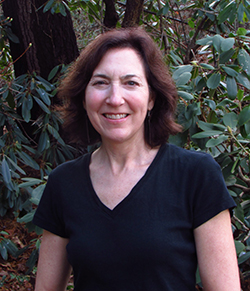 Susan Israel is an architect, artist, climate communicator, and social entrepreneur. In 2008, after 20 years as an architect, she decided that she wanted to do something more for our climate, and founded Climate Creatives to engage, educate and empower people to act on climate change. She uses art and design because data alone doesn’t do it: behavioral change begins with an emotional commitment. Climate Creatives offers proprietary programs and hands-on creative workshops for sustainability, innovation, communication and leadership. Susan’s Distributed Public Art installations connect communities that foster awareness and action towards a more sustainable world. Susan uses her own artwork as a personal lab for exploring ways to connect people to climate issues through art, and her work has been exhibited in over a dozen group shows in recent years. Susan is a registered architect, LEED Accredited Professional; Connective Leadership Institute Certified Trainer; Member of the Harvard Alumni Association Board of Directors; and Member of the Advisory Board of ArtWeek Boston. She holds an A.B. from Harvard College, a Master of Architecture from Harvard Graduate School of Design, and attended Museum of Fine Arts School in Boston.
Susan Israel is an architect, artist, climate communicator, and social entrepreneur. In 2008, after 20 years as an architect, she decided that she wanted to do something more for our climate, and founded Climate Creatives to engage, educate and empower people to act on climate change. She uses art and design because data alone doesn’t do it: behavioral change begins with an emotional commitment. Climate Creatives offers proprietary programs and hands-on creative workshops for sustainability, innovation, communication and leadership. Susan’s Distributed Public Art installations connect communities that foster awareness and action towards a more sustainable world. Susan uses her own artwork as a personal lab for exploring ways to connect people to climate issues through art, and her work has been exhibited in over a dozen group shows in recent years. Susan is a registered architect, LEED Accredited Professional; Connective Leadership Institute Certified Trainer; Member of the Harvard Alumni Association Board of Directors; and Member of the Advisory Board of ArtWeek Boston. She holds an A.B. from Harvard College, a Master of Architecture from Harvard Graduate School of Design, and attended Museum of Fine Arts School in Boston.
Radio Jarocho – Mexican folk music ensemble
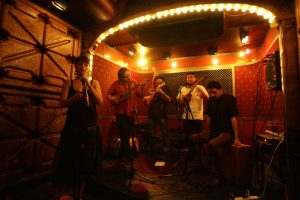 Radio Jarocho plays son jarocho music fashioned after the towns, musicians, and swampy countryside that created it in Veracruz, Mexico. They also write their own songs inspired by this popular genre and tailor them with assorted influences, creating a contemporary repertoire that captures the spirit of the traditional style. The band championed son jarocho by performing over the past decade in dozens of concerts and fandangos in several cities, including New York, Washington DC, Philadelphia, and Boston. The ensemble has performed in many prestigious venues, including the Kennedy Center’s Millennium Stage, La Casita at Lincoln Center, Le Poisson Rouge, New York, NY; Encuentro de Jaraneros in Chicago, IL; Celebrate Mexico Now! New York, NY; Organization of American States, Washington D.C.; and the National Museum of the American Indian (Smithsonian), New York, NY.
Radio Jarocho plays son jarocho music fashioned after the towns, musicians, and swampy countryside that created it in Veracruz, Mexico. They also write their own songs inspired by this popular genre and tailor them with assorted influences, creating a contemporary repertoire that captures the spirit of the traditional style. The band championed son jarocho by performing over the past decade in dozens of concerts and fandangos in several cities, including New York, Washington DC, Philadelphia, and Boston. The ensemble has performed in many prestigious venues, including the Kennedy Center’s Millennium Stage, La Casita at Lincoln Center, Le Poisson Rouge, New York, NY; Encuentro de Jaraneros in Chicago, IL; Celebrate Mexico Now! New York, NY; Organization of American States, Washington D.C.; and the National Museum of the American Indian (Smithsonian), New York, NY.
Ronstadt Generations y Los Tucsonenses
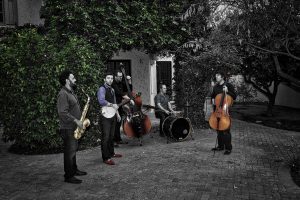 Representing five generations in North America, Ronstadt Generations continues the family’s musical traditions. Started by Michael J. Ronstadt (younger brother of Grammy Hall of Fame Honoree Linda Ronstadt) and his sons, Michael G. and Petie, they present an exciting repertoire that preserves the traditional Southwestern and Mexican songs of their heritage while offering innovative original material. New compositions place them on the cutting edge of multiple, blended genres, stretching the boundaries of folk, folk-rock, blues, jazz and beyond. Rich harmonies sung in English and Spanish are accompanied by outstanding cello and guitars. Individually and together, stateside and across the pond, the trio’s worldwide touring and recording credits include such diverse artists as Linda Ronstadt, Los Lobos, Dixie Hummingbirds, David Bromberg, Nydia Rojas, Tish Hinojosa, Muriel Anderson, and Mariachi Vargas, to name a few. Michael J. Ronstadt passed away on August 7, 2016. His sons and Los Tucsonenses carry on his musical legacy with Ronstadt Generations Y Los Tucsonenses.
Representing five generations in North America, Ronstadt Generations continues the family’s musical traditions. Started by Michael J. Ronstadt (younger brother of Grammy Hall of Fame Honoree Linda Ronstadt) and his sons, Michael G. and Petie, they present an exciting repertoire that preserves the traditional Southwestern and Mexican songs of their heritage while offering innovative original material. New compositions place them on the cutting edge of multiple, blended genres, stretching the boundaries of folk, folk-rock, blues, jazz and beyond. Rich harmonies sung in English and Spanish are accompanied by outstanding cello and guitars. Individually and together, stateside and across the pond, the trio’s worldwide touring and recording credits include such diverse artists as Linda Ronstadt, Los Lobos, Dixie Hummingbirds, David Bromberg, Nydia Rojas, Tish Hinojosa, Muriel Anderson, and Mariachi Vargas, to name a few. Michael J. Ronstadt passed away on August 7, 2016. His sons and Los Tucsonenses carry on his musical legacy with Ronstadt Generations Y Los Tucsonenses.
Deborah Vogel Cornwall, ‘80 – independent television producer, social media consultant, alto
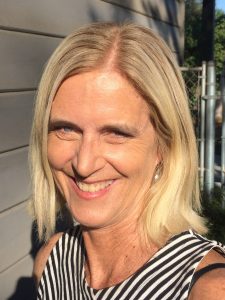 Deb Vogel is a TV news and sports producer, and most recently serving as Co-Executive Producer of BugBites, a science show for kids seen on PBS stations. She is a lifelong singer and performer, starting her first band at the age of 12. While an undergraduate at Harvard, she sang with the Radcliffe Choral Society and the University Choir, while also playing guitar and singing in a popular campus rock band. Ms. Vogel continues to sing, both secularly and non-secularly, around Southern California.
Deb Vogel is a TV news and sports producer, and most recently serving as Co-Executive Producer of BugBites, a science show for kids seen on PBS stations. She is a lifelong singer and performer, starting her first band at the age of 12. While an undergraduate at Harvard, she sang with the Radcliffe Choral Society and the University Choir, while also playing guitar and singing in a popular campus rock band. Ms. Vogel continues to sing, both secularly and non-secularly, around Southern California.
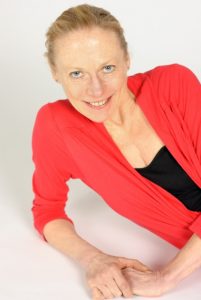 Lois Nesbitt – ’81 – one of the world’s most highly educated yoga teachers, has trained 1000s of yoga teachers worldwide, including 18 extended tours all across China; several visits to Japan, and many to Central America—all requiring her to adapt her teaching to radically different cultural milieus and historical contexts. She has also studied yoga history and philosophy under Douglas Brooks, (Ph.D. Harvard; professor at University of Rochester), with a special focus on Tantra, the path that leads from the mat out into the world. She delights in sharing the rich philosophical teachings of yoga with all she encounters, on and off the mat. Her workshop is informed by a view that Yoga is one of modern civilization’s leading “growth industries,” having spread from India to the West, from underdeveloped regions to high-tech meccas, from elite resorts and fitness centers to underserved public schools, VA hospitals, and prisons. Dr. Nesbit’s session will introduce you to why and how yoga is such a powerful key to unlocking our potential. You’ll learn—and even feel, through some simple, street-clothes-on movements–how when we move our bodies in new ways, our thinking clears up, and our hearts expand.
Lois Nesbitt – ’81 – one of the world’s most highly educated yoga teachers, has trained 1000s of yoga teachers worldwide, including 18 extended tours all across China; several visits to Japan, and many to Central America—all requiring her to adapt her teaching to radically different cultural milieus and historical contexts. She has also studied yoga history and philosophy under Douglas Brooks, (Ph.D. Harvard; professor at University of Rochester), with a special focus on Tantra, the path that leads from the mat out into the world. She delights in sharing the rich philosophical teachings of yoga with all she encounters, on and off the mat. Her workshop is informed by a view that Yoga is one of modern civilization’s leading “growth industries,” having spread from India to the West, from underdeveloped regions to high-tech meccas, from elite resorts and fitness centers to underserved public schools, VA hospitals, and prisons. Dr. Nesbit’s session will introduce you to why and how yoga is such a powerful key to unlocking our potential. You’ll learn—and even feel, through some simple, street-clothes-on movements–how when we move our bodies in new ways, our thinking clears up, and our hearts expand.
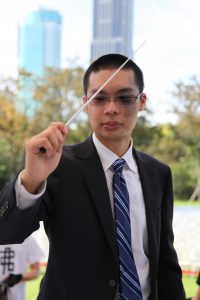
Sam Wu ’17 is a composer and conductor from Shanghai, China. He has studied composition under Tan Dun, Libby Larsen, Chaya Czernowin, Jason Eckardt, and David Conte; conducting under George Benjamin, Federico Cortese, and Andrew Clark.
Winner of Harvard’s John Green, Hugh F. MacColl, and Artist Development Prizes, Ensemble Ibis Competition, ASCAP Morton Gould Young Composer Awards, among others, his music has been performed in the United States, Australia, France, Portugal, Japan, China, and Indonesia. His collaborators include the Melbourne Symphony, Boston Philharmonic Youth Orchestra, Shanghai Chamber Orchestra, National Center for the Performing Arts in Beijing, Shanghai International Arts Festival, Asia Society, Sydney University Confucius Institute, Parker Quartet, Antioch Chamber Ensemble, Callithumpian Consort, Princeton Pianists’ Society, Harvard Ballet Company, and pipa virtuoso Wu Man, among others.
In addition to composing, Sam has served as the assistant conductor of the Harvard-Radcliffe Orchestra, music director of the Mozart Society Orchestra, Harvard-Radcliffe Gilbert and Sullivan Players, Harvard Early Music Society, and guest conductor of the Harvard Bach Society Orchestra.
Sam also has been featured on the National Geographic Channel, Business Insider, Harvard Crimson, Harvard Arts Blog, Sydney Morning Herald, Asahi Shimbun, People’s Daily, China Daily USA, SinoVision, four CCTV channels, ICS, Shanghai municipal TV Channels, among others.
Venue: Adams House and Boylston Hall, Harvard College
SIGN UP INFORMATION: HERE
Convening Day 1: Friday, January 20, 2017
Friday evening the conference kicks off with an evening of music and dancing, both commemorating and celebrating FDR’s efforts to use creative methods to bring people together in common cause. The Good Neighbor Policy is a great example of that vision – and we’ll reinvigorate FDR’s vision with music performed by outstanding Latino artists – Ronstadt Generations and Radio Jarocho, and food hosted by the Mexican Consulate of Boston.
Adams House Dining Hall – Doors open 8:00PM
Convening Day 2: Saturday, January 21
Location for the conference plenary remarks and panels will be Fong Auditorium, Boylston Hall, Harvard University. Please note: some talk titles are placeholders and will be finalized in November.
Past Inspiration
9:30-10:45
Michael Weishan: FDR, Henry Wallace, and How They Solved America’s First Ecological Crisis: The Great Dustbowl
As an introduction to how creative thinking can diffuse a crisis, Michael Weishan, FDR Foundation Director, will explore how a few radical thinkers like Henry A, Wallace prevented America’s greatest humanitarian crisis to date and very likely saved the United States from dissolution in the 1930s.
Present Inspiration
10:50-11:25
Mark Plotkin: Maps, Magic and Medicine in the Amazon Rainforest
The number two source of climate-changing gases being released into the atmosphere is forest burning, most of which happens in the tropics. For decades, environmentalists have been trying to determine the most effective way of protecting rainforests and one recently proven methodology is partnering with indigenous peoples to protect ancestral ecosystems. In this fast-paced talk, Plotkin will describe how his 30 year relationship with paramount shamans – and his organization’s pioneering use of cutting edge technology – has helped create a new paradigm for protecting rainforests, indigenous healing wisdom, and fighting climate change.
Morning Panel
11:30-12:15
Marisa Silver, Margarita Quihuis, Benjamín Juárez Echenique, Marcela Davison Aviles, moderated by Mark Plotkin: Creating Creativity
12:30-1:30 Lunch
Join us for a free lunch provided by the David Rockefeller Center for Latin American Studies and a workshop performance by Radio Jarocho
1:30-2:30 PM Breakout Workshops (see below)
Sign up sheets for the workshops will be available upon check-in.
Future Inspiration
2:45-3:30 Frank O’Keefe and Diego Canales: Harvesting CO2
Saturday Closing Address
3:45-4:30 PM
Ruben Navarette: What Our Youth Needs to Know
Concert
4:45-5:30
Sam Wu, composer
Typhoon Days: Trio for flute, violin and piano
Convening Day 3: Sunday, January 22, 2017
Past Inspiration
10:00–10:45
David Carrasco: Illuminating the Aztecs
Morning panel
10:50-11:20AM
Nick Taylor, Cynthia Koch and Benjamín Juárez Echenique Envisioning New Americas: How the Roosevelts, John Steinbeck and Mexico’s Nationalism Arts Movement created a new vision for global understanding
Present Inspiration
11:25-12:00 PM Margarita Quihuis: Harnessing Gaming Technology for Peace
12:00-1 Lunch
1:10 – :140 Post Luncheon Talk
Join Marisa Silver, New York Times best-selling author Marisa Silver discusses her new book, Little Nothing, and explores other examples of the surreal or allegorical as a response to repressive or violent political moments.
1:45 -2:45 Breakout Workshops
Present Inspiration
3:00-3:45
Edward Glaeser: Cities as Centers of Creativity
The rich and the poor world have urbanized dramatically over the past 50 years. This transformation creates challenges and opportunities. Making the cities of the developing world stronger is one of the great vocations of the twenty-first century.
Sunday Closing Address
4:00-4:45PM
Robert Lue: Science and Art: The Inextricable Link
Closing Performances and Reception:
5:00PM
Location: Adams House Lower Common Room, Adams House
Beyond Tomorrow Workshop Performances
BT Pop-Up Choir
Recitals
Piano and flute with Marisa Canales
Original ensemble composition by Sam Wu performed by Harvard students
Afternoon Workshops: Creativity and Confidence
- So … You Think you Can’t Fandango? A lunch workshop on Saturday January 21 in the Mexican folk music genre called “Son Jarocho” with Radio Jarocho. Learn the elements of creating harmony through a fusion of step dancing, singing, and instrumentation.
- So…. You Think You Can’t Reduce Your Carbon Footprint? a workshop on reducing landfill waste by adopting easy lifestyle “hacks” hosted by environmental activist and EPA attorney Melissa Allen ’80
- So … You Think You Can’t Draw? – a workshop with syndicated political cartoonist Lalo Alcaraz (both days). From zero experience, learn how to draw cartoons that are not only funny but socially relevant.
- So … You Think You Can’t Sing? a workshop on creating pop-up community choirs taught by Deborah Vogel with members of the Harvard acapella community (both days)
- So … You Think You Can’t Be an Advocate? a workshop on climate change centered arts advocacy with Susan Israel
- So … You Think You Can’t Change The World? a workshop and discussion on the impact of John Steinbeck – Nick Taylor, the Steinbeck Center
- So… You Think Yoga Can’t Change the World? no yoga mats or special clothes required! This interactive discussion/workshop will introduce some street-clothes-on samplings of how yoga works, as we explore it’s power to change the world, one breath at a time – with Lois Nesbit ’81

